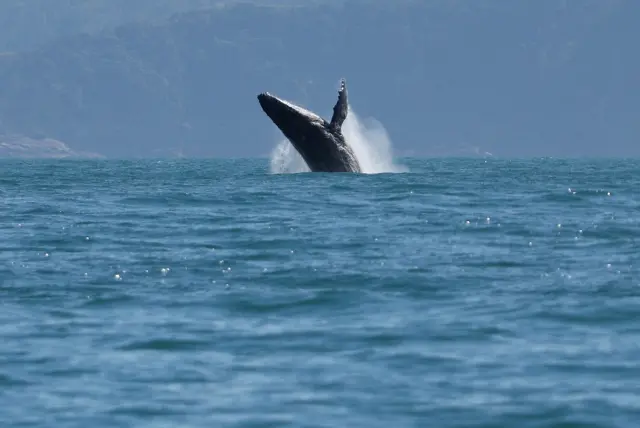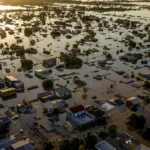The resurgence of humpback whales is a testament to the success of conservation efforts in Brazil
Citizen scientists in Brazil have recently witnessed a remarkable sight: the return of humpback whales to their waters after decades of mass killings. The whales, which were once hunted to near extinction, have been spotted in increasing numbers off the coast of Brazil since the early 2000s.
The resurgence of humpback whales is a testament to the success of conservation efforts in Brazil. In the 1950s and 1960s, thousands of humpbacks were killed for their oil and meat, leading to a dramatic decline in their population.
However, in 1986, Brazil declared a ban on whaling and began to protect its whale populations. Since then, conservationists have worked hard to restore the species’ numbers.
The efforts appear to be paying off. Citizen scientists from all over Brazil are now reporting sightings of humpback whales in increasing numbers. The whales are seen feeding on krill and other small fish near shorelines and even swimming close enough for people to observe them from boats or beaches.
According to a new study, the population of humpback whales in Brazil has grown from just a few hundred individuals to more than 10,000 today. The researchers used aerial surveys and acoustic recordings to track the whales over a period of 15 years. They found that the population had increased by an average of 7% each year since 2003.
This is an encouraging sign that these majestic creatures are making a comeback after decades of being hunted nearly to extinction. The return of humpback whales is also having an economic impact on local communities as whale watching has become a popular tourist activity.
Tourists flock to coastal towns hoping for a glimpse at these majestic creatures, bringing much-needed revenue into local economies.
The return of humpback whales is an inspiring reminder that conservation efforts can be successful if given enough time and resources. It is also a reminder that we must continue our efforts to protect these animals so that future generations can enjoy them as well.




